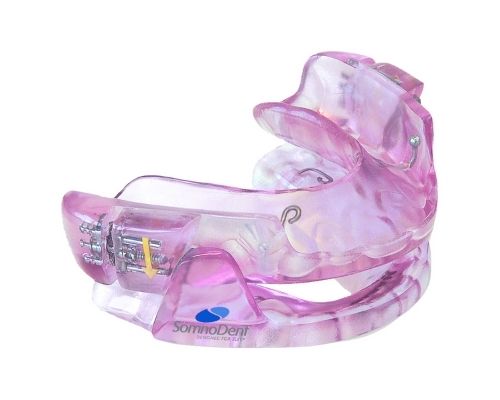Do you ever feel like no matter how long you sleep, it's not enough? Does your bed partner complain about your snoring? Are you dozing off in the afternoon or feel like you always need to take a nap? If so, you might be suffering from Obstructive Sleep Apnea.
What is Obstructive Sleep Apnea?
Obstructive Sleep Apnea (OSA) occurs when the muscles relax during sleep, causing soft tissue in the back of the throat to collapse and block the upper airway. This leads to partial reductions and/or complete pauses in breathing that last at least 10 seconds during sleep. Most pauses last between 10 to 30 seconds, but some may persist for one minute or longer. This can lead to abrupt reductions in blood oxygen saturation, with oxygen levels falling as much as 40% or more in severe cases.
The brain responds to the lack of oxygen by alerting the body, causing a brief arousal from sleep that restores normal breathing. This pattern can occur hundreds of times in one night, obstructing one’s sleeping pattern. The result is a fragmented quality of sleep that often produces an excessive level of daytime sleepiness.
Effects of Sleep Apnea
Symptoms of obstructive sleep apnea include snoring, choking or gasping sounds during sleep. However, you can also have sleep apnea even if you don't snore frequently or loudly. OSA can cause silent pauses in your breathing, so be on the lookout for these additional symptoms:
- Waking in the morning feeling unrefreshed
- Being tired during the day
- Morning headaches
- Waking up frequently at night to go to the bathroom
- Difficulty concentrating or remembering things
The primary effect of sleep deprivation is excessive daytime sleepiness. This can lead to an increased risk of more serious health conditions such as heart attack, stroke, depression, increased blood pressure, and even death. OSA can also cause fogginess, irritability, poor memory, weight gain, dry mouth, decreased concentration, sexual dysfunction, and problems in relationships, ultimately leading to poor quality of life.
How is Sleep Apnea Diagnosed?
Obstructive sleep apnea must be diagnosed by a doctor, so you should ask your primary care doctor for a sleep evaluation. Your primary care doctor may provide a diagnosis or may refer you to a doctor who specializes in treating sleep problems. To find out if you have OSA, your doctor or the sleep specialist will complete a sleep evaluation. This may involve either an overnight sleep test at a sleep center or a home sleep apnea test (HSAT). A sleep specialist will interpret the data from your sleep test. The information from the evaluation and the sleep test results will be used to determine if you have OSA.
Treatment for Sleep Apnea

In the past, with a diagnosis of sleep apnea, the sleep physician would outfit the patient with a CPAP (Continuous Positive Airway Pressure) unit to treat the problem. Compliance with CPAP therapy has historically presented itself with challenges for some patients.
Oral Appliance Therapy (OAT) is another option that Dr. Klein can provide at our St. Clair and Dufferin dental office. It can be very effective for the right patient, and much more comfortable than wearing a full face mask. Patients have proven to be far more compliant in wearing the oral appliance at nighttime versus the CPAP machine.
OAT is an effective, non-invasive treatment option for snoring and OSA that fits easily into your lifestyle. An oral appliance looks like an orthodontic retainer and is worn only during sleep. It supports the jaw in a forward position to help keep your upper airway open, which prevents sleep apnea and snoring.
Wearing the appliance, the number of times the patient stops breathing during the night is substantially reduced, as are the snoring sounds. As a result, the patient has a longer and more restful night’s sleep and therefore wakes up feeling more rested—better able to concentrate and enjoy the day. The oral appliance is also portable and easy to take with you when you travel.
Some of the many brands of oral appliances we provide include the Somnodent Classic as well as the Panthera D-SAD. The oral sleep appliance that we will recommend for you will be based on your individual needs. These appliances are very lightweight and patients adapt to them quickly.
Dr. Gary Klein is trained to provide OAT and can make a custom-fitted oral appliance using impressions and models of your mouth. Treating snoring or sleep apnea with OAT can help you feel like a new person. You will find that your symptoms - and your quality of life - can improve dramatically when you remain committed to your treatment and use it nightly. Custom-fit oral appliances from our dental office at St. Clair and Dufferin can improve your sleep, restore your alertness, and revitalize your health.
If you have concerns about snoring and sleep apnea, contact us today! Our team at Smilesolvers is ready to answer your questions about obstructive sleep apnea and oral appliance therapy.

